![]()
» Iran Falls Behind Mexico, Djibouti
The editorial discusses Iran’s position in Corruption Perceptions Index 2016.
The editorialist begins by referring to the recent Corruption Perceptions Index (CPI) published by the International Transparency organization in which Iran ranks 131 among 176 countries, scoring 29 points out of 100. Although Iran’s place in this report is better than some countries in the region, such as Afghanistan, Iraq, Yemen, and Syria.
The editorial continues that the International Transparency organization measures financial corruption in countries by CPI which is determined by economic activists. According to this organization, financial corruption means abusing political and governmental position to gain personal interests. The International Transparency’s latest reports stress “the interplay of corruption and inequality feeds populism” and populist politicians. 70 % of the countries in this report have ranked lower than 50, while the best scores belong mostly to the countries, which enjoy open governments, free press and civil liberties.
The editorialist then zeroes in on Iran which falls behind Mexico, Djibouti, and Togo, saying the only solution for this problem is to be generated at the country’s universities through approaches based on latest developments in the world.
An editorial in “Shargh” daily on November 1, 2017
» Iranian ethnicities and Cyrus Day
Each year, Iranian people gather at the tomb of Cyrus, the first king of Persia, to celebrate Cyrus Day, which is considered as anti-revolution by Iran establishment. This year, on October 29, Iranian authorities tried to shut down the celebration. This editorial argues that Iranian people’s respect for Cyrus the Great is a conspiracy of Iran’s enemies.
The editorialist holds that enemies of Iran have always used ethnic issues as an excuse to damage national integrity. These days, the enemies are trying to separate Iranian ethnicities from each other by naming a day as “Cyrus Day” and promote Pan-Iranism. Thus doing, they will help U.S. with its goal, that is, creating a new Middle East.
According to the editorial, the first thing these enemies do is to inculcate this idea to all ethnicities that they are not a unified whole, but a number of different ethnicities oppressed by one ethnic minority; therefore, all ethnicities need to rise and stand up for your rights by achieving independence.
At the end, the editorialist claims that such activities merely seem to be nationalistic and are controlled by the western countries’ intelligence agencies.
An editorial in “Siasat Rouz” on October 31, 2017
» Passing through Trump’s Horror Tunnel
This editorial discusses how Iran should deal with the crisis of Donald Trump’s era.
The editorialist begins by portraying Iran under alarming conditions, saying Trump is trying to turn the world against this country. Now the major question is: How can Iran go through such crisis at a low cost, keep JCPOA and save the region from another war?
Although it is highly unlikely that Iran can reach an agreement with U.S., doors of diplomacy can remain open. It should not be forgotten that U.S. and Iran cooperated during Afghanistan and Iraq crises due to their shared interests during George Bush’s presidency. Iran should avoid taking measures which agitate or humiliate Trump.
Moreover, despite the fact that Iran needs Europe for keeping the nuclear deal, it should not act in a way that leads to increasing tension between Europe and U.S. regarding JCPOA. What is more, Iran needs to normalize its relations with neighboring countries through negotiation and diplomacy based on a win-win logic as Trump is after instrumental use of the region, reviving Iranophobia.
An editorial in “Shargh” daily on October 30, 2017
» Less Budget for Monitoring Institutions, More for Media
The editorial discusses the key role Iran’s media can play in disclosing and preventing corruption if financially independent.
In Iran’s 23rd Press Exhibition, First Vice President Eshaq Jahanigiri asked media not to stammer when confronted with corruption. Jahangiri, talking on behalf of the government, pointed to a significant issue. Corruption has become Iran’s Achilles heel these days. Embezzlements are skyrocketing and there must be a leverage to make corruptors apprehensive.
The editorialist continues that media, if free and fearless, can prevent corruption. But media in Iran are not financially capable enough to do so. What the government needs to do is to help media become financially independent. Nowadays, there are numerous monitoring institutions in the judiciary, executive and legislative branches to which massive budgets are dedicated. Yet corruption cases happen and the question still remains unanswered: where were those monitoring institutions?
The editorial closes by saying that media, if less restricted, can disclose issues more than those institutions and prevent corruption. So wouldn’t it be better to dedicate a part of monitoring institutions’ budget to media? Needless to say, media should not be dependent on any state institution, otherwise, they fail to do their job properly as they should support their employers’ interests.
An editorial in “Tejarat” online on October 29, 2017
![]()
♦ Iranian citizens under sanction by Chinese
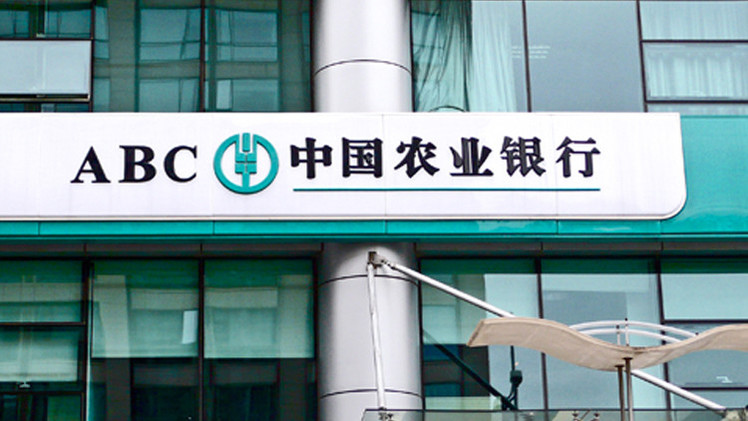
Chinese state bank froze the accounts of Iranian students for money laundering. The Chinese have even put sanctions on Iranians who live in Europe. Last summer, China, the biggest buyer of Iran’s oil, accused Iranian exporters of money laundering. Several months ago, the accounts of Iranian exporters were frozen, and now Iranian students are facing the same problem. Now Iranian students receive an SMS from Chinese banks saying, ‘Iranian students! Very quickly take care of your bank accounts, before it is frozen.’
Shahravand
♦ Annihilation of two international drug trafficking networks in Kerman
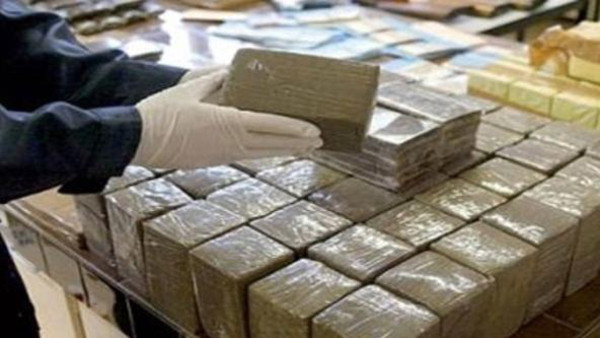
Intelligence ministry announced the annihilation of two international drug trafficking networks in Kerman Province. According to this ministry, members of these networks who had crossed the borders of Sistan and Baluchistan were identified, and in two operations, these organized and armed drug trafficking groups were destroyed. In these operations, more than 2 tons of opium and hashish and 4 firearms were seized, and 4 people were arrested.
IRIB news agency
♦ Zolnour: Implementing CAATSA means violating JCPOA
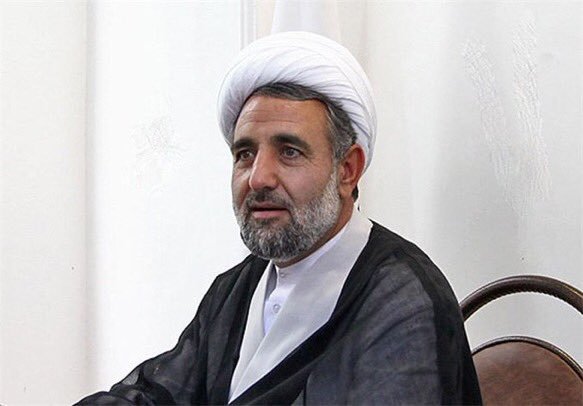
Head of Parliament’s Nuclear Committee Mojtaba Zolnour pointed to the possible implementation of CAATSA (Countering America’s Adversaries Through Sanctions Act) by the U.S., saying if this law is implemented, it is an obvious violation of JCPOA, and ‘both body and spirit of the nuclear deal will be destroyed’. Zolnour urged that in case CAATSA, which Americans call as ‘mother of all sanctions’, be implemented, all nuclear and non-nuclear sanctions by the U.S. Congress and U.S. president, as well as Security Council’s sanctions, will be aggregated, and the number of people under sanctions will increase.
Mehr news
♦ Araghchi: We are ready for all scenarios to confront U.S.
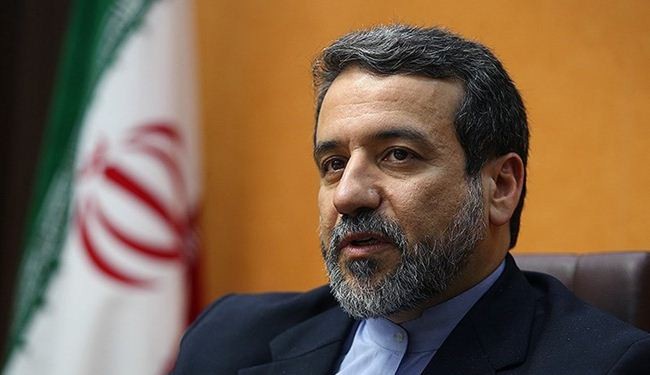
Deputy Foreign Minister Abbas Araghchi, in the Parliament’s open session, underscored that Iran’s foreign ministry reports to the regime’s authorities about JCPOA every day, saying ‘for anything that the U.S. wants to do in JCPOA, we have made the predictions, thought of the necessary measures, and are ready for any scenarios.’ Araghchi added that Iran’s biggest challenge in implementing JCPOA and after its implementation has been the U.S. ill-intention.
ISNA
♦ Iranian drones equipped with smart bombs
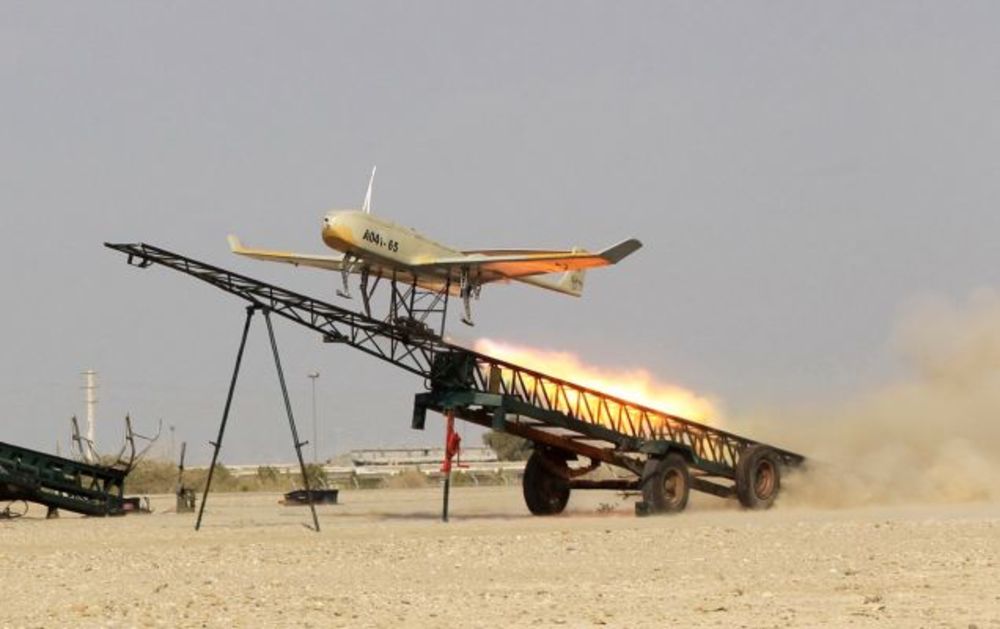
Iran’s Air Force drones were officially equipped with smart bombs. General Massoud Roozkhosh, the spokesperson of air war game, announced that in the military drill, army’s drones – equipped with smart bombs and with long-range flight – could destroy the ‘enemy’s defense system for the first time’. Iran is holding an air war game code-named Aerial Power of Fadaeeyan-e Harim-e Velayat 7 (Devotees of Velayat Airspace 7).
Tasnim news
♦ Zarif goes to Parliament to answer questions
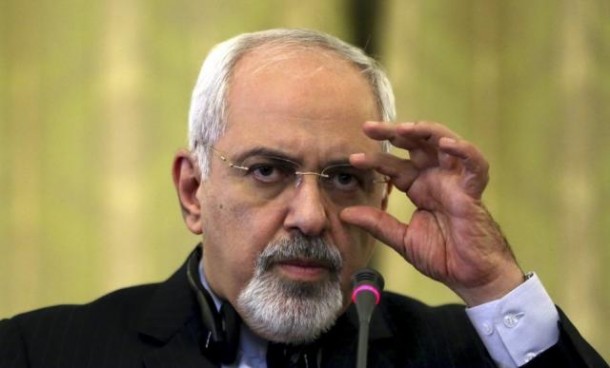
In a session with Parliament’s National Security and Foreign Policy Commission, FM Mohammad Javad Zarif answered lawmakers’ questions and listened to their objections. Zarif responded to a question posed by Karimi Ghodousi about how 4 dual nationality citizens found their ways into nuclear negotiation team. But this lawmaker didn’t find his response satisfactory. Another lawmaker had questioned Zarif about why Iran is not taking retaliatory measures regarding Azerbaijan’ government, adding while Azerbaijan’s citizens can enter Iran without a visa, Iran’s citizens need to have visas for entering that country.
IRIB news agency
♦ 8.5% increase in deaths of female addicts
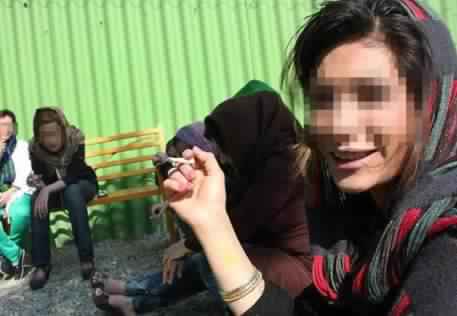
Head of addiction study group of forensic research center announced the increase in deaths among women due to narcotic drug abuse. He said in the first 6 months of this year, there has been 8.5% increase in death due to drug abuse. Ali Rabiee, Minister of Labor, Cooperative, and Welfare, had said before that currently one of the serious issues in the society is an escalation of addiction among women, and the prevalence of addiction among women has moved from 4% to 10%.
Arman Emrouz
♦ IRGC Commander: Iran to increase missile range, if CAATSA implemented
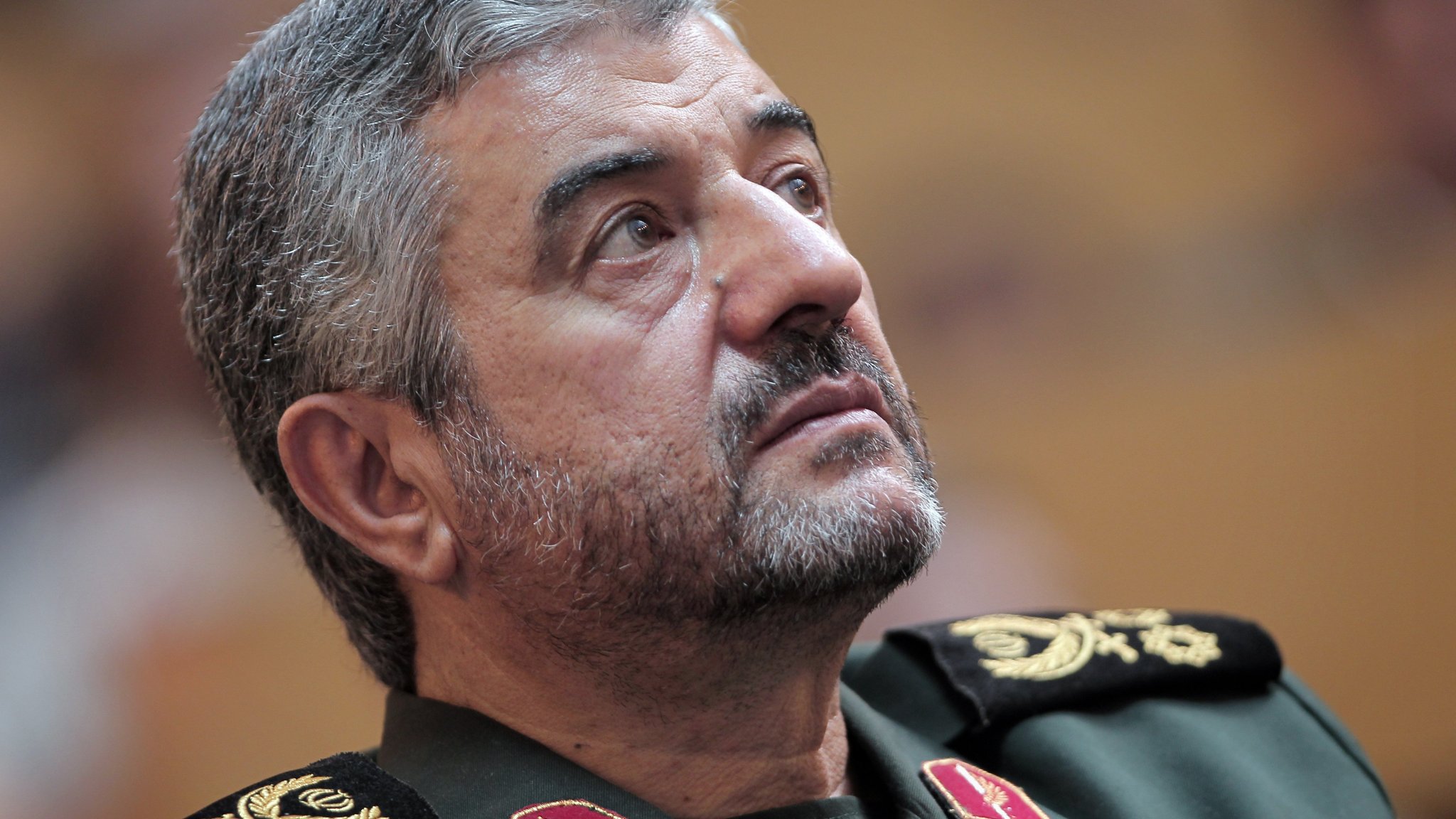
Brigadier-General Mohammad Ali Jafari, commander of Iran Revolutionary Guards Corps (IRGC), said ‘Americans are sure that implementing CAATSA and increasing economic pressures on Iranian people will make Iran resolve in strengthening defense capability, and number and range of Iranian missiles will increase.’ Jafari urged that by implementing CAATSA (Countering America’s Adversaries Through Sanctions Act), the U.S. has actually targeted Iran’s economy on the pretext of putting sanctions on IRGC and Iran’s defense and missile capability.
ISNA
♦ Salehi: two nuclear power plants to construct in Bushehr
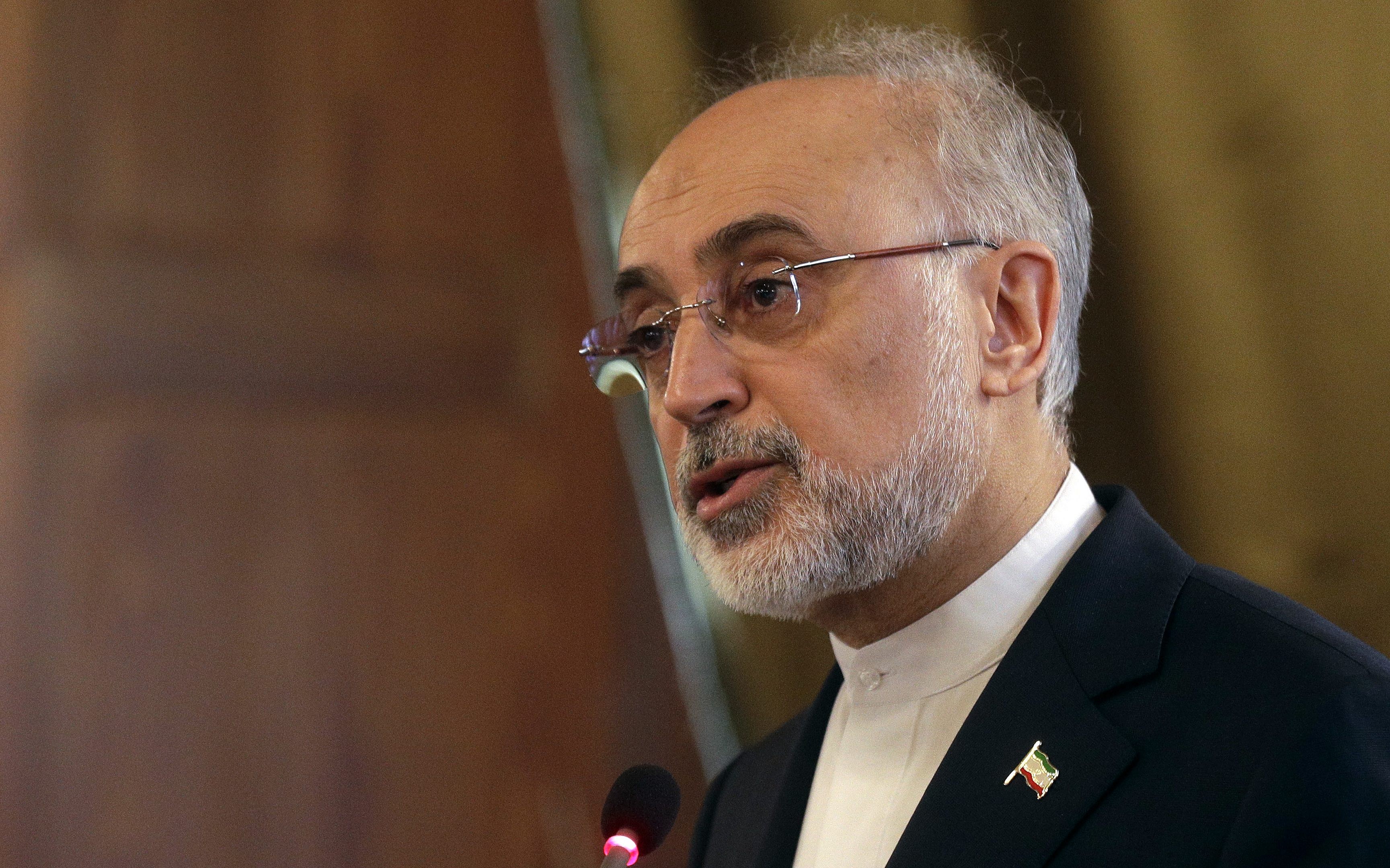
Head of Atomic Energy of Iran Ali Akbar Salehi said the official construction of two nuclear power plants in Bushehr would start with the presence of Alexi Likhachev, Director General of ROSTAM. Salehi added that even though construction of these two power plants had actually started last year, it would officially begin this week.
Tasnim news
♦ Iran to launch air war game
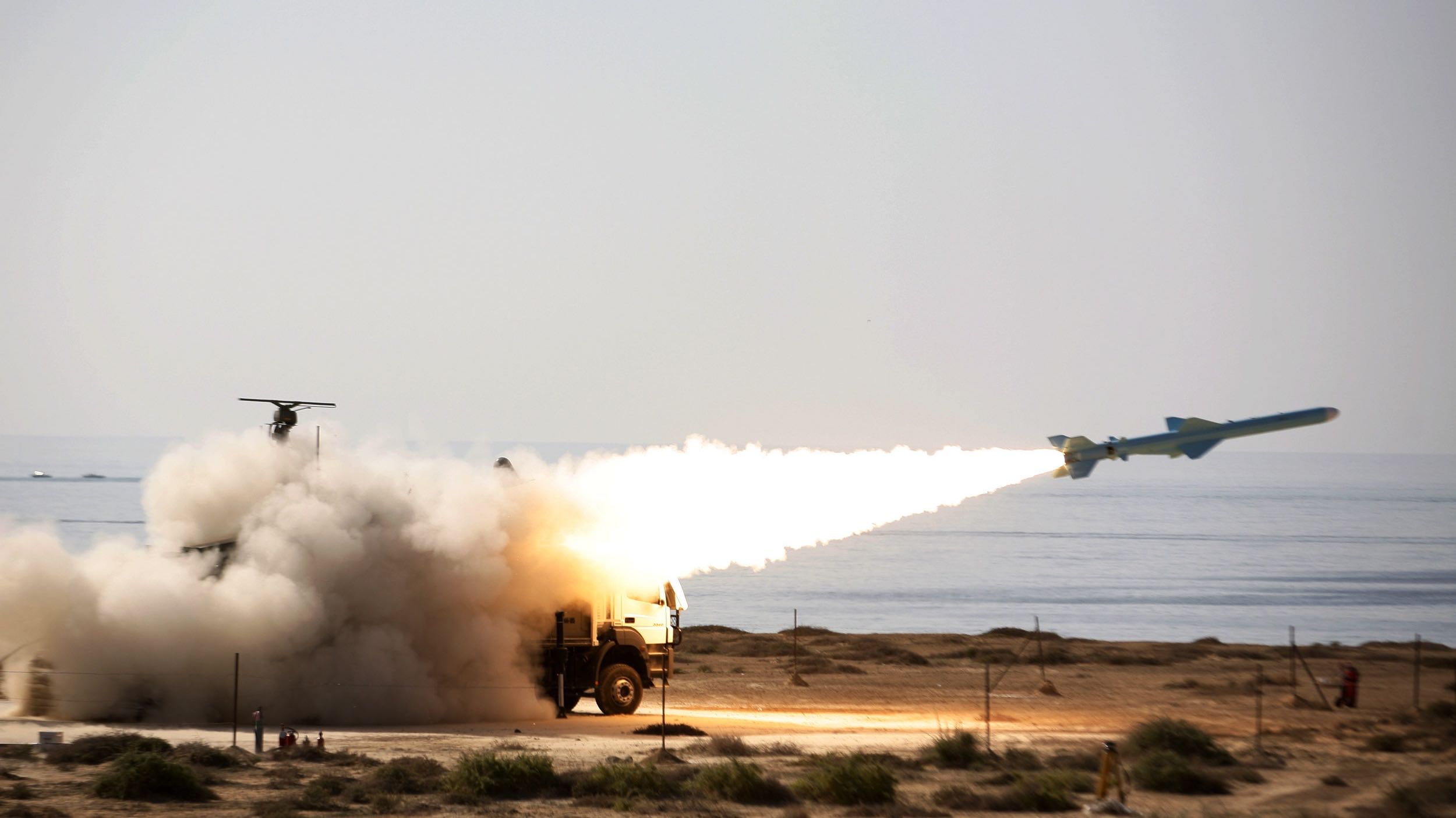
Iran started massive air drill on Tuesday. According to General Massoud Roozkhosh, the spokesperson for the war game, the two-day military exercises would aim at simulating real battle scenes. In the drill, code-named Aerial Power of Fadaeeyan-e Harim-e Velayat 7 (Devotees of Velayat Airspace 7), dozens of bomber airplanes, heavy-duty aircrafts, military transport aircrafts, communication and reconnaissance planes, tanker aircrafts, and Unmanned Aerial Vehicles would take part.
ISNA
♦ Ghassemi: Africa, big target for Iran
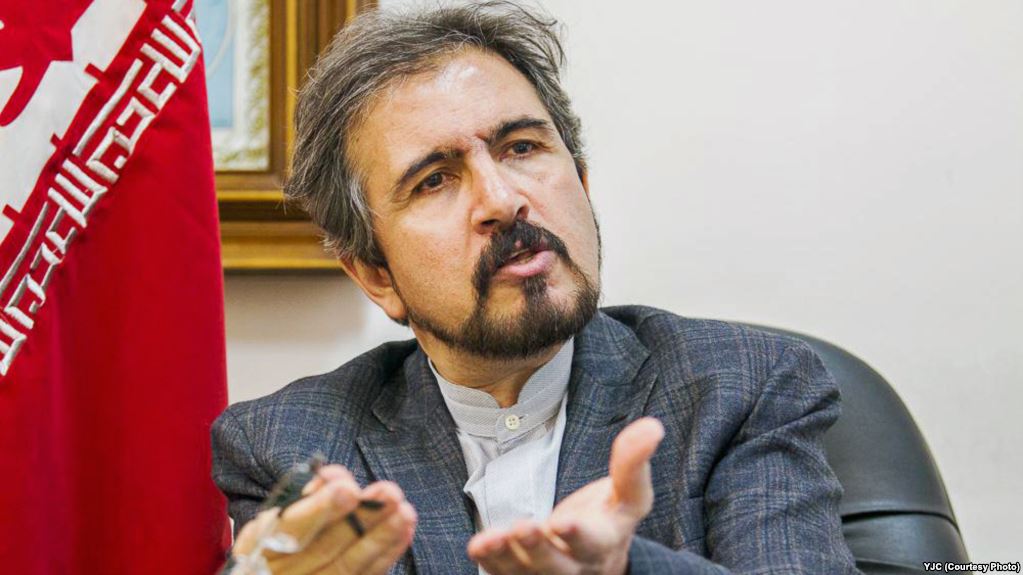
Spokesperson of Iran’s Foreign Ministry Bahram Ghassemi pointed to FM Mohammad Javad Zarif’s recent trip to 3 African countries, saying that Africa is one of the huge targets of Iran. He urged that Africa has nothing to do with Europe and other countries, adding that Africa by itself consists of countries with which Iran has an independent relationship and will try to have more comprehensive coordination.
Vatan Emrouz
♦ Iranian banks on path to Africa
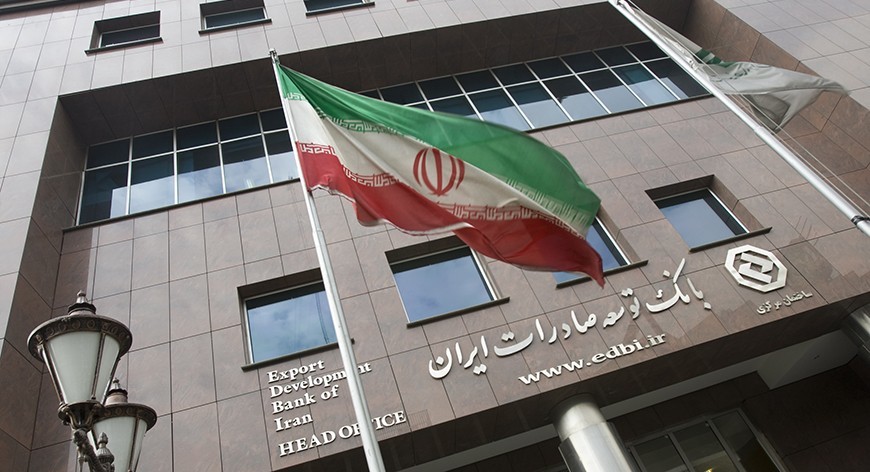
Based on negotiations, Iran will establish banking relationships with African banks. Iran hasn’t had any broker ties with African banks so far. During years Iran was under economic sanctions, one the biggest problems of the banking system was discontinuation of broker ties, and its impact on banks’ international relations.
Kelid
♦ Rahimpour: Russia, Azerbaijan support JCPOA

Deputy foreign minister for Asia and Oceania Ebrahem Rahimpour said the main focus of Russian President Vladimir Putin’s upcoming trip to Tehran will be a North-South corridor. According to Rahimpour, the other issue which will be discussed in this trip is JCPOA. He added that ‘Russian Federation and Azerbaijan have always supported the nuclear deal, and regional and international issues will also be discussed in these talks as well’.
Mehr news
♦ U.S. Baha’i community concerned over persecution of Baha’is in Iran

Some leaders of U.S. Baha’i community who had gathered on occasion of 200th anniversary of the birth of the founder of Baha’i Faith, Bahaullah, expressed worries over persecutions of Baha’is in Iran. Currently, U.S. House of Representative is working on a legislation which condemns Iranian government for persecuting a Baha’i minority, denouncing continuation of the violation of International Covenant on Human Rights by that government.
VOA Persian
♦ IRGC trains Iraqi, Syrian forces
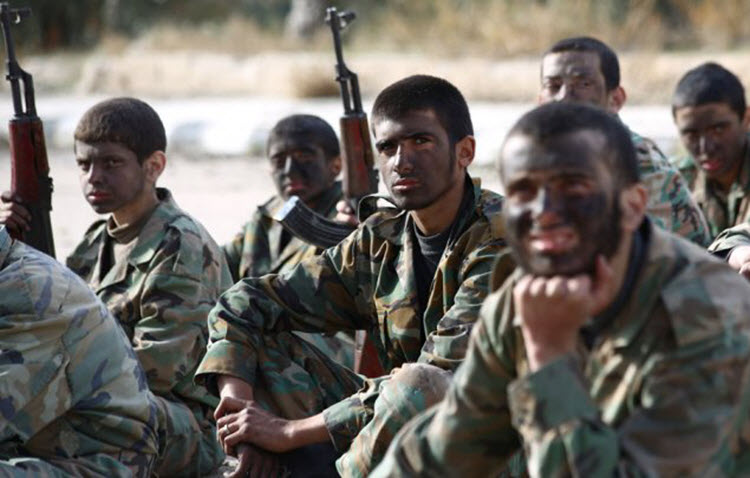
Brigadier-General Gholam Reza Jalali, head of Iran’s Passive Defense Organization, said today with training and guideline of Iran Revolutionary Guards Corps (IRGC), the Resistance Axis is formed in Iraq and Syria. Jalali added that today Basij culture has crossed the borders of the country to the extent that this culture creates the popular resistance forces in Syria and Popular Mobilization Forces in Iraq.
Arman Emrouz
♦ Judiciary spokesperson: We must be vigilant to confront enemy
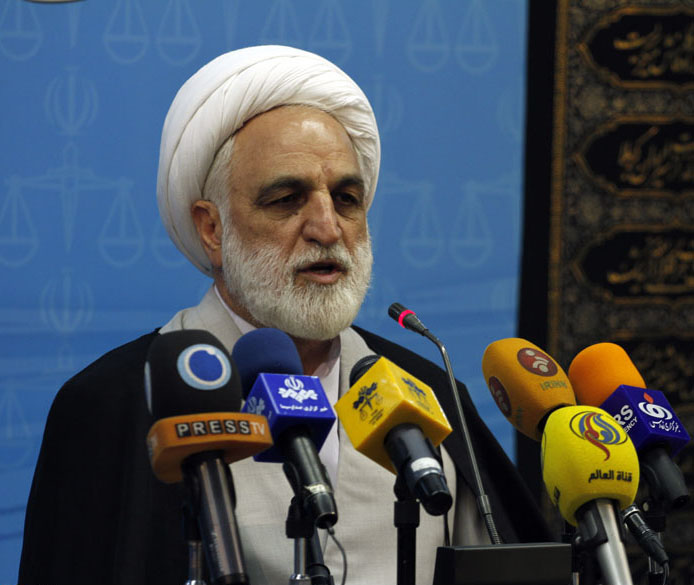
Iran’s judiciary spokesperson Mohseni Eje’i said, ‘we must be very vigilant to confront enemies’ programs to harm Iran.’ He added that given the ‘complicated situation of recent decades and resentment of arrogance against Iran, it is necessary to trust God Almighty and show strength in this path.’
Jahan Sanat
♦ Students’ assemblies to protest against candidate for ministry of science
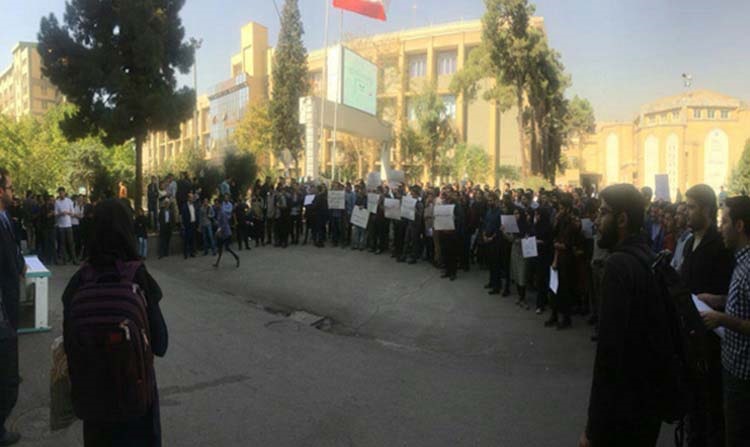
Following Hassan Rouhani’s announcing Mansour Gholami as his candidate for the ministry of science, there were disagreements against him from universities all over Iran. During the past week, different protest assemblies were held in universities. These were unprecedented as there has never been any protest to introducing a candidate for ministry.
The assemblies that started in universities of Amir Kabir, Science and Technology, Qazvin International University, Tehran Arts, and Mashhad’s Ferdowsi later spread to Shahid Beheshti, Tehran, Sharif University, Razi in Kermanshah.
Students who oppose of Gholami do not consider him in line with students’ demands and pledges made by Rouhani to students.
Iranian University Students news
♦ Lawmaker: No negotiations on defense, missile capabilities
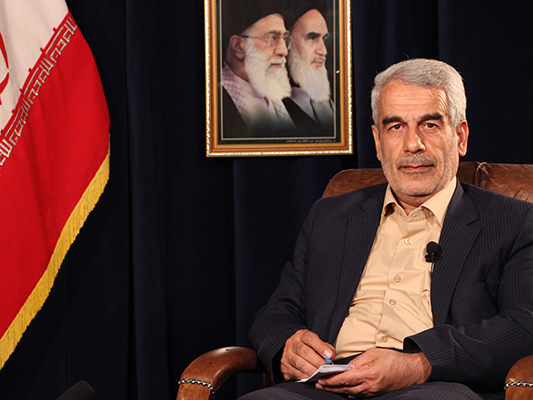
Member of Parliament’s National Security and Foreign Policy Commission Mohammad Ebrahem Rezaee said all Iranian military and governmental officials unanimously agree that the country’s defense and missile capabilities are non-negotiable. He added that U.S. Congress by ratifying “Iran Ballistic Missiles and International Sanctions Enforcement Act” is seeking to make Iran retreat from its position by putting the country under additional pressure, particularly in missile issue which is ‘our red line’.
Parliament news agency
♦ Joint trade forum between Iran and Niger
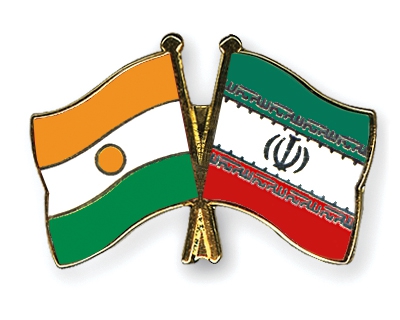
Foreign ministers of Iran and Niger opened the joint trade forum between the two courtiers in Niamey, capital of Niger. In this meeting which was held with the presence of both countries’ tradespeople, Mohammad Javad Zarif pointed out to his meetings with Niger’s officials, adding that the necessary political will for developing relations and cooperation between the two countries exists. Zarif has gone to Africa, heading a political and economic delegation.
ISNA
♦ Majid Ansari ready to debate with Guardian Council
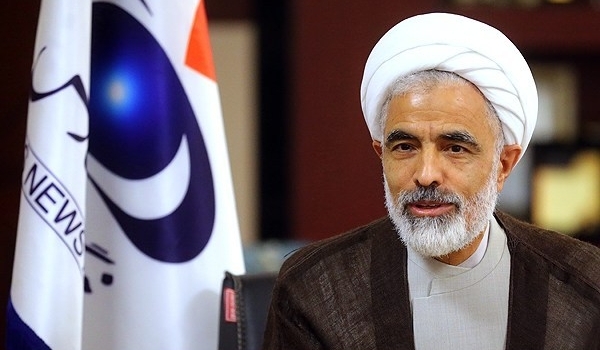
Following a dispute over the suspension of Sepanta Niknam, Zoroastrian member of Yazd’s City Council, Majid Ansari, member of Expediency Council and former Vice president, criticized the Guardian Council, announcing that he is ready to debate this issue with any of the members of this council.
Suspension of Sepanta Niknam from Yazd City Council took place with referring to Ahmad Janati’s letter, secretary of Guardian Council. jurists of Guardian Council say Sepanta Niknam, due to being Zoroastrian, doesn’t have the right to be a representative in the City Council of Yazd.
ISNA
♦ UN special rapporteur concerned over executions, human rights in Iran

UN Special Rapporteur for Human Rights in Iran Asma Jahangir published a report about 6 months of investigation, expressing worries over the number of executions, tortures, juvenile death penalties, trial and persecutions of human rights activists, freedom of speech, and conditions of women’s rights and religious and ethnic minorities.
Jahangir added that at least 4 suspects were executed for crimes committed at a juvenile age, and 86 other teenagers are waiting for execution. She also expressed concerned about reports regarding torture, prosecution, trial and persecution of human rights activists.
Radio Farda
♦ Iranian pilgrims banned from contacting Iraqi citizens, police
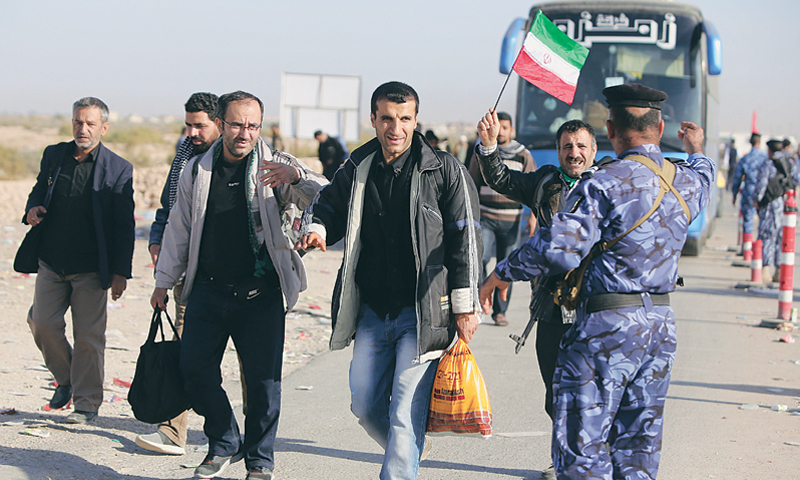
Iranian officials warned Iranian pilgrims who would go to Shiite shrines in Iraq against contacting Iraqis, “albeit they are the police forces”. Iranian women were asked not to leave their places of residence, and Iranian pilgrims were also asked to avoid Iraqi goods.
Based on a number of visa requests, Iranian Haj and Pilgrimage Organization has predicted that more than 2.5 million people will go to Iraq for taking part in Arbaeen ceremony.
Shabtaab
♦ U.S. enmities with IRGC due to defeat says, cleric
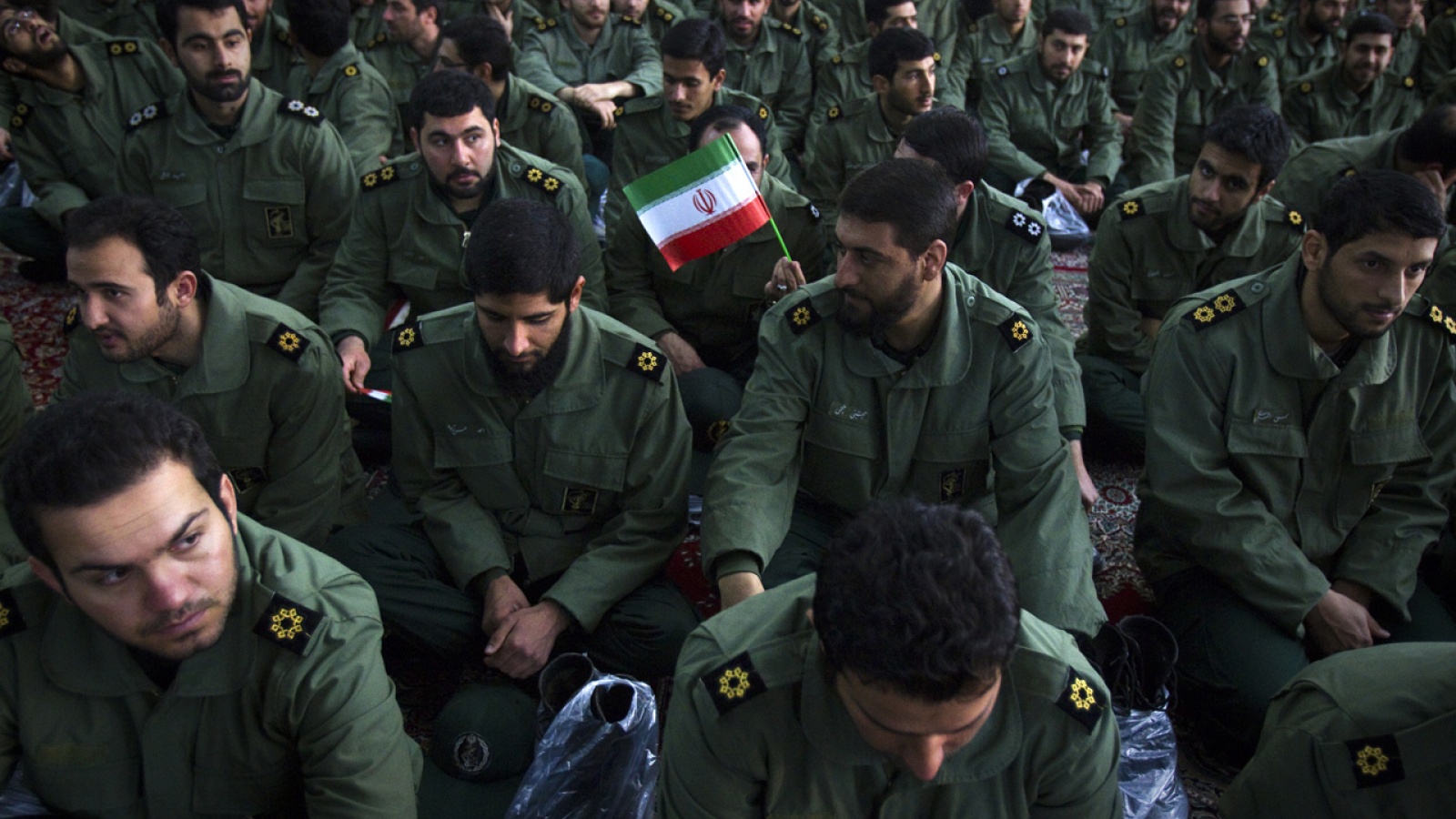
Baharestan’s Friday Mass Prayer Leader Ahmad Mohsenzadeh pointed out to U.S. enmities with Iran Revolutionary Guards Corps (IRGC) due to their defeats, saying that ‘IRGC is the vital blood of our society and ‘Islam,’ and wherever they have failed, it has been due to IRGC’s bravery’. Mohsenzadeh mentioned U.S. not fulfilling its obligations, accusing Europeans of having the same intentions as Americans. He urged, ‘our enemies want Iran to be without missile and revolutionary guards.’
Tasnim news
♦ Police warns Karbala pilgrims not to buy toys
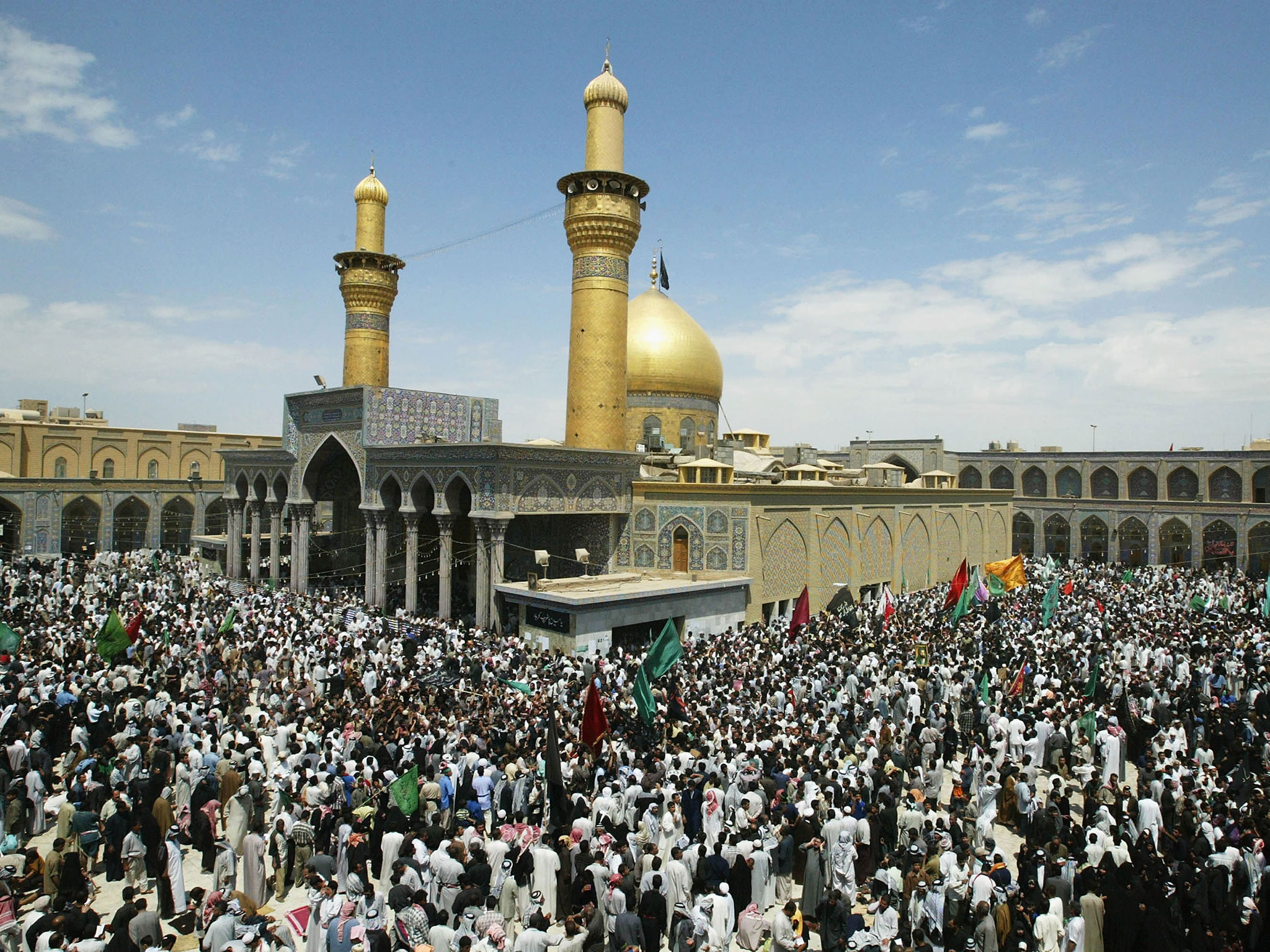
Police officials announced that the problem of issuing Iraq’s visas for Iranians is resolved. The law enforcement recommended to Iranian pilgrims not to buy any goods, and women were told not leave their residential places unaccompanied and alone. In this statement, the police have emphasized that given the ‘possibility of infiltration of spies and hostile elements among the mourners’, Iranian pilgrims must avoid any unusual relation with unknown people. Also, the police have asked people not to purchase any goods, particularly decorative goods and toys there.
Entekhab
